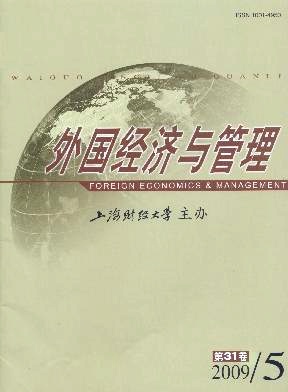家长式领导研究述评
外国经济与管理 2009 年 第 31 卷第 05 期, 页码:38 - 44
摘要
参考文献
摘要
最初有学者认为家长式领导根植于华人文化背景,带有一定的文化异质性,但越来越多的证据表明,在一些文化背景相似甚至差异很大的国家和地区,家长式领导同样存在并且发挥着积极的作用。华人心理学家和管理学家对家长式领导理论的形成和发展做出了卓越的贡献,同时,家长式领导也引起了西方学者的极大兴趣,成为跨文化研究的一项重要课题。本文对家长式领导的研究现状进行了回顾,并指出了未来的研究应该深入探讨的问题。
[1]Redding,S G.The spirit of Chinese capitalism[M].New York:Walter de Gruyter,1990.
[2]Farh,J L,and Cheng,B S.A cultural analysis of paternalistic leadership in Chinese organizations[A].in J T Li,A S Tsui,and EWeldon(Eds.).Management and organizations in the Chinese context[C].London:Macmillan,2000.
[3]Westwood,R.Harmony and patriarchy:The cultural basis for“paternalistic headship”among the overseas Chinese[J].OrganizationStudies,1997,18(3):445-480.
[4]Pellegrini,E K,and Scandura,T A.Paternalistic leadership:A review and agenda for future research[J].Journal of Management,2008,34(3):566-593.
[5]Aycan,Z.Paternalism:Towards conceptual refinement and operationalization[A].in K S Yang,K K Hwang,and U Kim(Eds.).Sci-entific advances in indigenous psychologies:Empirical,philosophical,and cultural contributions[C].London:Sage Ltd.,2006.
[6]Silin,R H.Leadership and value:The organization of large-scale Taiwan enterprises[M].Cambridge,MA:Harvard UniversityPress,1976.
[7]Uhl-Bien,M,Tierney,P,Graen,G,and Wakabayashi,M.Company paternalism and the hidden investment process:Identificationof the“right type”for line managers in leading Japanese organizations[J].Group and Organization Studies,1990,15:414-430.
[8]Aycan,Z,Kanungo,R N,Mendonca,M,Yu,K,Deller,J,Stahl,G,et al.Impact of culture on human resource management prac-tices:A 10-country comparison[J].Applied Psychology:An International Review,2000,49(1):192-221.
[9]Pellegrini,E K,Scandura,T A,and Jayaraman,V.Generalizability of the paternalistic leadership concept:A cross-cultural investi-gation[R].Working Paper,University of Missouri,St.Louis,2007.
[10]郑伯壎,周丽芳,樊景立.家长式领导量表:三元模式的建构与测量[J].本土心理学研究,2000,14:3-64.
[11]周浩,龙立荣.恩威并施,以德服人———家长式领导研究述评[J].心理科学进展,2005,132:227-238.
[12]Cheng,B S,Shieh,P Y,and Chou,L F.The principal’s leadership,leader-member exchange quality,and the teacher’s extra-rolebehavior:The effects of transformational and paternalistic leadership[J].Indigenous Psychological Research in Chinese Societies,2002,17:105-161.
[13]Cheng,B S,Chou,L F,Wu,T Y,Huang,M P,and Farh,J L.Paternalistic leadership and subordinate responses:Establishinga leadership model in Chinese organizations[J].Asian Journal of Social Psychology,2004,7(1):89-117.
[14]Chou,L F,Cheng,B S,and Jen,C K.The contingent model of paternalistic leadership:Subordinate dependence and leader compe-tence[R].Paper presented at the Meeting of the Academy of Management,Honolulu,Hawaii,2005.
[15]Farh,J L,Cheng,B S,Chou,L F,and Chu,X P.Authority and benevolence:Employees’responses to paternalistic leadership inChina[A].in A S Tsui,Y Bian,and L Cheng(Eds.).China’s domestic private firms:Multidisciplinary perspectives on managementand performance[C].New York:Sharpe,2006.
[16]Pellegrini,E K,and Scandura,T A.Leader-member exchange(LMX),paternalism and delegation in the Turkish business culture:An empirical investigation[J].Journal of International Business Studies,2006,37(2):264-279.
[2]Farh,J L,and Cheng,B S.A cultural analysis of paternalistic leadership in Chinese organizations[A].in J T Li,A S Tsui,and EWeldon(Eds.).Management and organizations in the Chinese context[C].London:Macmillan,2000.
[3]Westwood,R.Harmony and patriarchy:The cultural basis for“paternalistic headship”among the overseas Chinese[J].OrganizationStudies,1997,18(3):445-480.
[4]Pellegrini,E K,and Scandura,T A.Paternalistic leadership:A review and agenda for future research[J].Journal of Management,2008,34(3):566-593.
[5]Aycan,Z.Paternalism:Towards conceptual refinement and operationalization[A].in K S Yang,K K Hwang,and U Kim(Eds.).Sci-entific advances in indigenous psychologies:Empirical,philosophical,and cultural contributions[C].London:Sage Ltd.,2006.
[6]Silin,R H.Leadership and value:The organization of large-scale Taiwan enterprises[M].Cambridge,MA:Harvard UniversityPress,1976.
[7]Uhl-Bien,M,Tierney,P,Graen,G,and Wakabayashi,M.Company paternalism and the hidden investment process:Identificationof the“right type”for line managers in leading Japanese organizations[J].Group and Organization Studies,1990,15:414-430.
[8]Aycan,Z,Kanungo,R N,Mendonca,M,Yu,K,Deller,J,Stahl,G,et al.Impact of culture on human resource management prac-tices:A 10-country comparison[J].Applied Psychology:An International Review,2000,49(1):192-221.
[9]Pellegrini,E K,Scandura,T A,and Jayaraman,V.Generalizability of the paternalistic leadership concept:A cross-cultural investi-gation[R].Working Paper,University of Missouri,St.Louis,2007.
[10]郑伯壎,周丽芳,樊景立.家长式领导量表:三元模式的建构与测量[J].本土心理学研究,2000,14:3-64.
[11]周浩,龙立荣.恩威并施,以德服人———家长式领导研究述评[J].心理科学进展,2005,132:227-238.
[12]Cheng,B S,Shieh,P Y,and Chou,L F.The principal’s leadership,leader-member exchange quality,and the teacher’s extra-rolebehavior:The effects of transformational and paternalistic leadership[J].Indigenous Psychological Research in Chinese Societies,2002,17:105-161.
[13]Cheng,B S,Chou,L F,Wu,T Y,Huang,M P,and Farh,J L.Paternalistic leadership and subordinate responses:Establishinga leadership model in Chinese organizations[J].Asian Journal of Social Psychology,2004,7(1):89-117.
[14]Chou,L F,Cheng,B S,and Jen,C K.The contingent model of paternalistic leadership:Subordinate dependence and leader compe-tence[R].Paper presented at the Meeting of the Academy of Management,Honolulu,Hawaii,2005.
[15]Farh,J L,Cheng,B S,Chou,L F,and Chu,X P.Authority and benevolence:Employees’responses to paternalistic leadership inChina[A].in A S Tsui,Y Bian,and L Cheng(Eds.).China’s domestic private firms:Multidisciplinary perspectives on managementand performance[C].New York:Sharpe,2006.
[16]Pellegrini,E K,and Scandura,T A.Leader-member exchange(LMX),paternalism and delegation in the Turkish business culture:An empirical investigation[J].Journal of International Business Studies,2006,37(2):264-279.
引用本文
曾楚宏, 李青, 朱仁宏. 家长式领导研究述评[J]. 外国经济与管理, 2009, 31(5): 38–44.
导出参考文献,格式为:
上一篇:供应商选择研究述评
下一篇:员工敬业度研究现状探析与未来展望





 8771
8771  729
729

